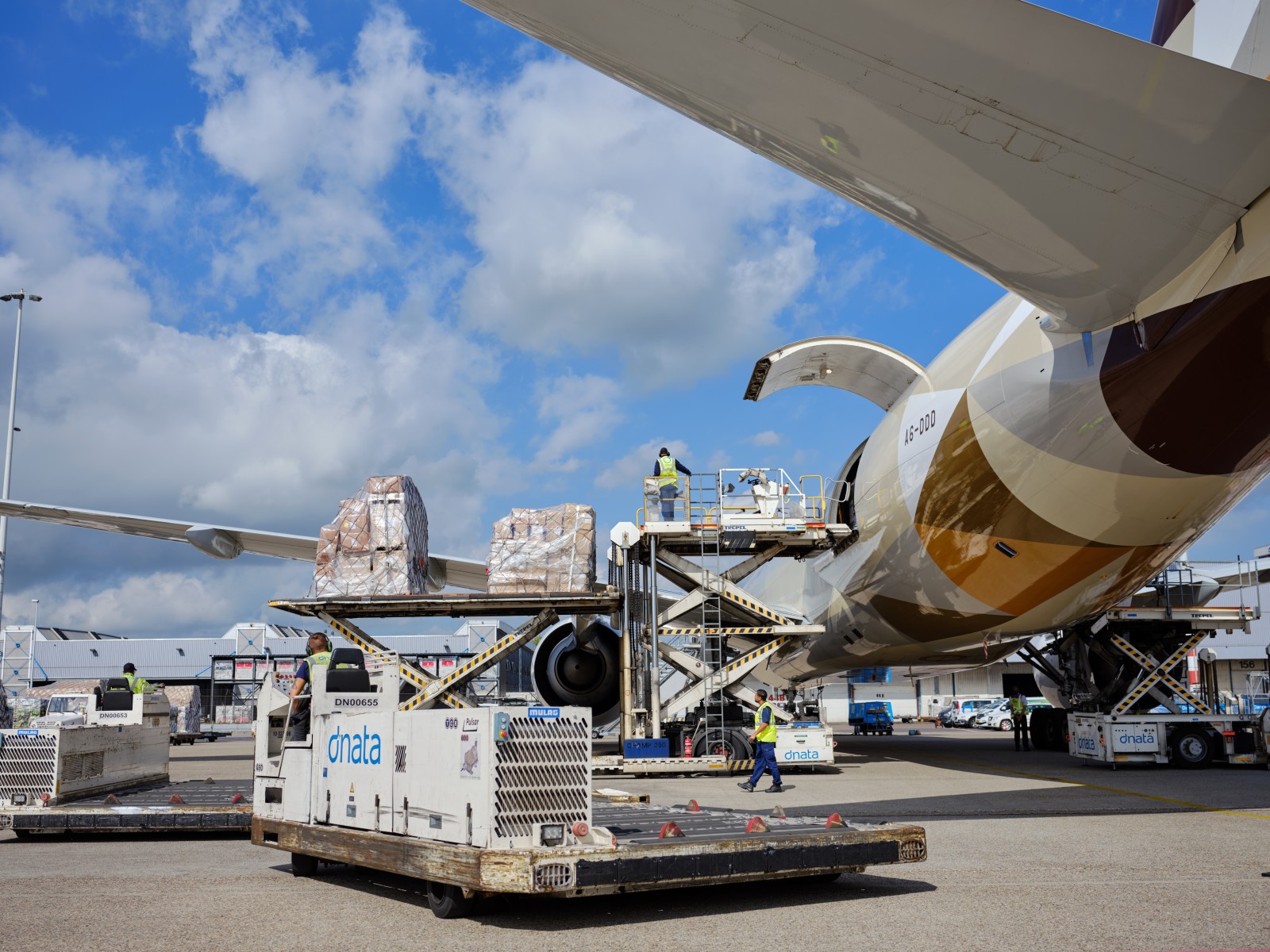What can a well-filled belly do for Schiphol?
Cargo is playing an important part in the recommencement of passenger flights at Schiphol. Especially when it comes to intercontinental flights. These are the long journeys between different parts of the world, such as from Amsterdam to Shanghai. Did you know that Schiphol is the third cargo hub in Europe?
Sharing the plane with piles of packages
Cargo and travellers are more closely linked than you might have first thought. Did you know that cargo isn’t solely transported in special cargo planes? It often goes in the hold - the belly - of passenger planes. It’s very likely that you’ll be sitting on piles of packages when flying to your holiday destination.
Cargo instead of travellers
Passenger numbers are on the rise, but not yet back to normal. That’s why airlines are filling planes with more cargo than usual. In doing so, flights become a bit more profitable. And that means more opportunities for Schiphol.
Schiphol is an attractive place for cargo
That’s because Schiphol is an attractive market location for cargo. Airlines want cargo, but they do set high standards. The cargo should be profitable. Fortunately, profitable cargo is something Schiphol has. Examples include high-grade pharmaceutical goods and hi-tech components from companies such as Philips and chip manufacturer ASML.
Plenty of return cargo
There should also be return cargo. Because the belly of a plane should also be well-filled on the flight back. Schiphol does well on this point too. Dutch lorry drivers collect goods from all over Europe, which are then transported all over the world via Schiphol.
More destinations
It is increasingly evident that cargo is helping our intercontinental network to start up again. Over the last few weeks, airlines have been gradually increasing the number of destinations from Schiphol. Now you know what the secret is: a well-filled belly.

